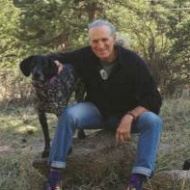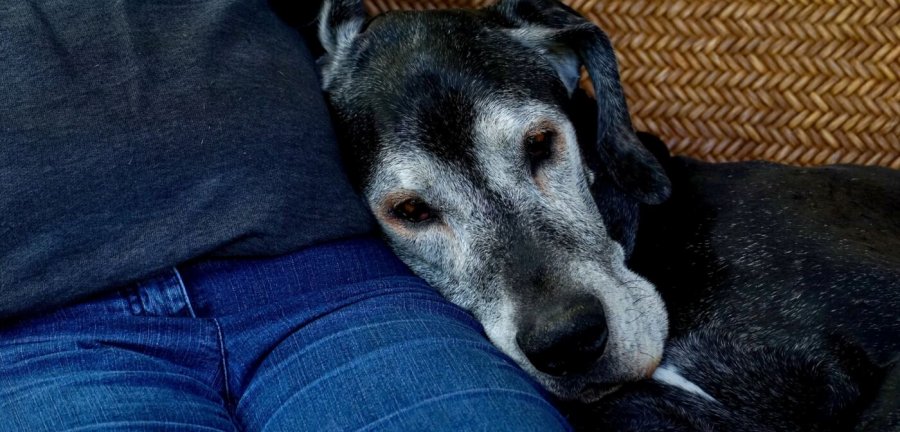By Marc Bekoff
“Come on, Marc—it’s time for a hike … or dinner … or a tummy rub.”

Then, in his old age, it became clear that our days together were numbered. I realized that the uninhibited and exuberant wagging of his whip-like tail—which fanned me in the summer, occasionally knocked glasses off the table, and told me how happy he was—would soon stop.
What should I do? Let him live in misery, or help him die peacefully, with dignity? It was my call—and a hard one.
Just as I was there for him in life, I needed to be there for him as he approached death, to put his interests ahead of mine, to help end his suffering, and to help him cross into his mysterious future with grace, dignity, and love. Easier said than done.
It’s great to be trusted and loved, and no one does those things better than dogs. Jethro was no exception. But along with trust and love come many serious responsibilities and difficult moral choices.
I find it easiest to think about dog trust in terms of what they expect from us. They have great faith in us. They expect we’ll always have their best interests in mind—that we’ll care for them and make them as happy as we can.
Because they’re so dependent on us, we’re also responsible for making difficult decisions about when to end their lives, or to “put them to sleep.” I’ve been faced with this situation many times and have anguished over trying to do what’s right for my buddies. Should I let them live a bit longer, or has the time really come to say goodbye?
When Jethro got old and could hardly walk, eat, or hold his water, the time had come for me to put him out of his misery. He was dying right in front of my eyes, and in my heart, I knew it. Even while eating a bagel, he was miserable.
Deciding when to end an animal’s life is a real-life moral dilemma. There aren’t any dress rehearsals, and doing it once doesn’t make doing it again any easier.
Jethro knew I’d do what’s best for him, and I came to feel that often, he’d look at me and say, “It’s OK. Please take me out of my misery and lessen your burden. Let me have a dignified ending to what was a great life. Neither of us feels better letting me go on like this.”
Finally, I chose to let Jethro leave Earth in peace. After countless hugs and “I love yous,” I swear that he knew what was happening when he went for his last car ride and that he accepted his fate with valor, grace, and honor.
And I feel he told me that the moral dilemma I faced was no predicament at all—that I had done all I could and that his trust in me was not compromised one bit but, perhaps, strengthened, because I had made the right choice and I could go on with no remorse or apologies.
Let’s thank our animal companions for who they are.
Let’s rejoice and embrace them as the amazing beings they are. If we open our hearts to them, we can learn much from their selfless lessons in compassion, humility, generosity, kindness, devotion, respect, spirituality, and love. By honoring our dogs’ trust, we tap into our own spirituality, hearts, and souls.
And sometimes, that means ending their lives not only with love but also with mercy when the flame of their life has nearly gone out and left them in a miserable condition.
Our companions count on us to be there for them in all situations, to let them go and not to let their lives deteriorate into undignified humiliation while we ponder our own needs instead of theirs. We are obliged to do so. We can do no less.








